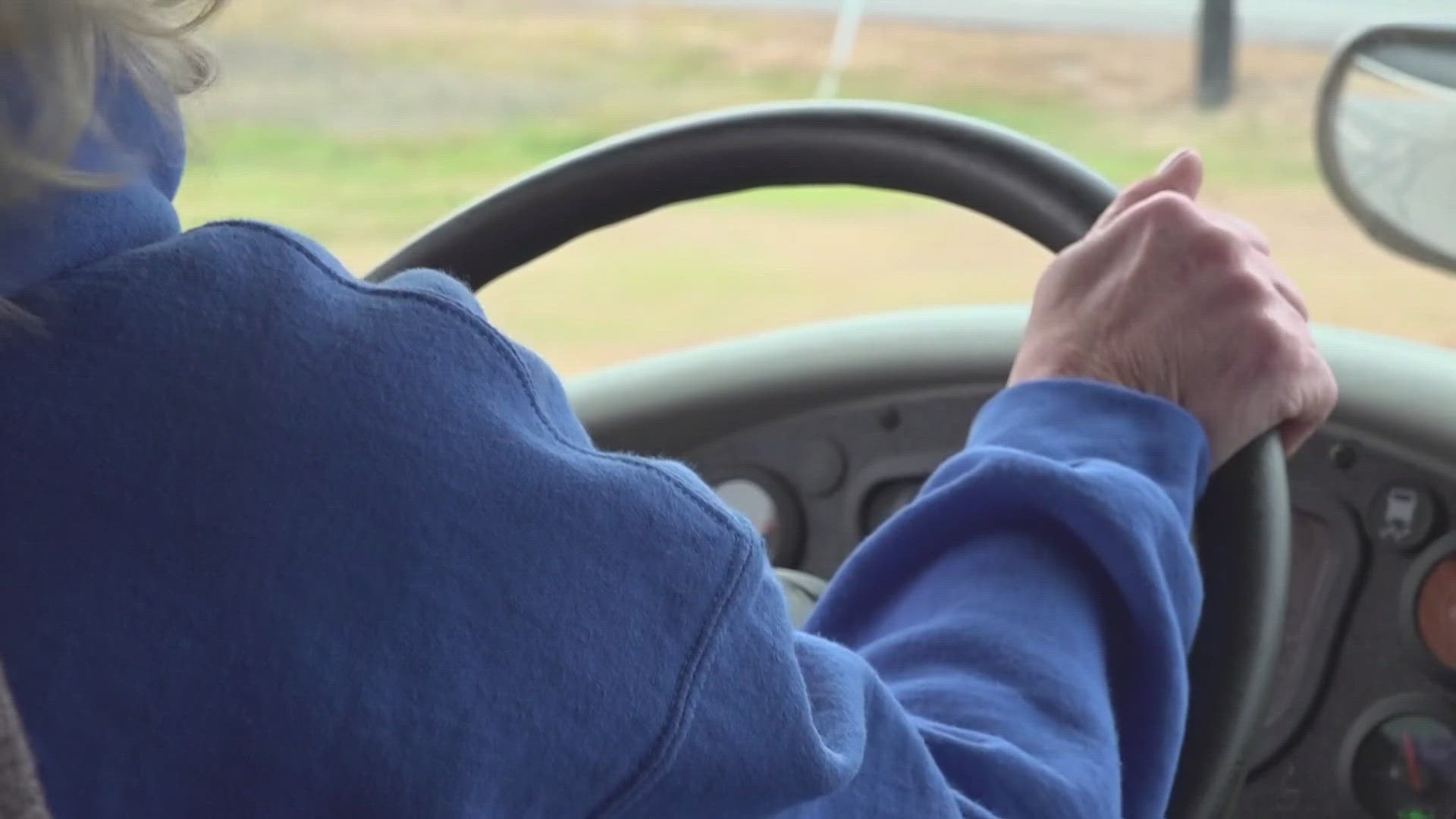BINGHAM, Maine — Just over a year ago, MSAD 13, the Bingham-Moscow School District, was awarded an electric school bus through the Environmental Protection Agency’s Clean School Bus Program. Now, school staff and leaders are reflecting on its impact in this rural school district.
Linda Cates, a bus driver for MSAD 13, drives about 50 students from preschool to grade 12 every school day. She was skeptical when she learned she would be behind the wheel of an electric bus.
"Petrified!" she said, recalling her first reaction.
It took some time for her to get used to the change, but Cates now says the experience has been a positive one.
"I like the room, it’s wider, and it really rides like a Cadillac, and it’s really quiet," Cates said.
Scott Lawyerson, another bus driver in the district, said that operating costs for charging the bus are similar to those for diesel fuel.
He added that the electric bus also avoids some of the issues they face with their diesel models, like difficulties with diesel exhaust fluid systems.
"This electric bus doesn’t have any system like that on it, so it’s actually been one of our more dependable buses," Lawyserson said.
The electric bus can travel about 120 miles on a full charge, which is sufficient for the district’s short routes.
"It is working well in a very rural, small district," Sandra MacArthur, MSAD 13’s superintendent said. "We have 150 students, pre-k through 12, we are very small, and it works really well for us."
The Maine Department of Education aims to have 75% of all new school buses purchased by 2035 be electric.
Organizations like the Natural Resources Council of Maine (NRCM) are advocating for zero-emission initiatives like this one.
"Here in Maine, about half of our annual greenhouse gas emissions come from the transportation sector," Josh Caldwell, outreach manager, and climate and clean energy policy advocate for NRCM said. "So, it’s a really critical sector for us to address in terms of addressing pollution that causes climate change."
Switching from diesel to electric, according to NRCM, reduces harmful emissions and improves air quality.
For Cates, the impact of the new bus on students has been the best part.
"It’s good, it’s comfortable for them, they’re happy," she said. "That’s all that matters—happy and safe."
The EPA is accepting applications for the 2024 Clean School Bus Rebate Program open until January 9.

